Millions of Americans have imperfect credit due to bankruptcy, foreclosure, crushing medical or student loan debts, and other financial black marks. A bad credit score can affect your ability to secure an affordable home loan, rent an apartment, get a cell phone, and even find a job.
For other folks, the problem isn’t bad credit so much as no credit. Consumers who haven’t previously used credit are ciphers to lenders and credit card companies, which are understandably wary about lending to people without a track record of timely repayments.
Whether you’re dealing with the negative effects of bad credit, or simply don’t have much of a credit history to speak of, applying for a secured credit card could end up being a critical first step on your path out of the credit wilderness.
Best Secured Credit Cards
These are the best secured credit cards on the market today. All are designed to help people build or rebuild credit and become more empowered consumers, and each does at least one thing really well to that end.
Most also allow cardholders in good standing to graduate to unsecured credit cards after a year or two, eliminating the hassle of closing accounts and applying for new cards.
Best Overall: Petal® 1 “No Annual Fee” Visa® Credit Card
Petal credit cards are issued by WebBank, Member FDIC.
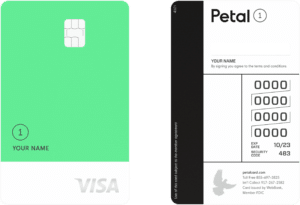
The Petal® 1 “No Annual Fee” Visa® Credit Card is not a secured credit card. But it does use innovative cashflow underwriting to empower those looking to build and rebuild their credit scores.
The result: eligible applicants with lower credit scores may be approved for a Petal 1 card with a high limit credit card and no annual fee. Purchases with select merchants may earn up to 10% cash back, too.
Other Petal 1 features worth mentioning include:
- No annual fee
- Variable APRs ranging from 25.24% to 34.74%
- $300 to $5,000 credit limits
- 2% to 10% cash back from select merchants
- No international fee
Learn More About the Petal 1 “No Annual Fee” Card
Best for Cash-Back Rewards: Secured Sable ONE Credit Card
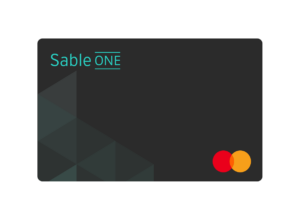
The Secured Sable ONE Credit Card has an unusually generous rewards program that pays at least 1% cash back on eligible purchases and 2% cash back on everyday purchases with Amazon, Whole Foods, Uber, Uber Eats, Spotify, Netflix, and more.
That’s a far better rate of return than most secured credit cards. Plus, get a dollar-for-dollar match on all cash back earned during the first year.
Additional features:
- No SSN required to apply, ideal for new arrivals to the U.S.
- Boost your credit score to 700 or higher within 12 months to earn a $25 bonus
- Make timely payments with responsible credit utilization to qualify for a credit line increase in as little as 4 months
- No annual fee or foreign transaction fee
Learn More About the Secured Sable ONE Credit Card
Best for Credit Limits Above the Security Deposit: Capital One Platinum Secured Credit Card
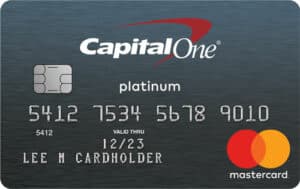
The Capital One Platinum Secured Credit Card is one of the few secured credit cards that entitles some cardholders to a credit limit greater than their initial deposit, which can be as low as $49 for a $200 starting credit limit.
This card is also noteworthy for comparatively low fees and a smooth process for qualifying for credit limit increases. Said increases don’t necessarily require additional cash deposits, further reducing the card’s cost.
Additional features:
- No annual fee
- Credit limits up to $1,000
- Full access to CreditWise from Capital One, featuring a “what-if simulator” that lets you run different scenarios to predict changes in your credit score and debt load
- Regular reporting to all 3 major consumer credit bureaus: Experian, Equifax, and TransUnion
Learn More About the Capital One Platinum Secured Card
Best for Totally Free Credit-Building: Secured Chime Credit Builder Visa® Credit Card
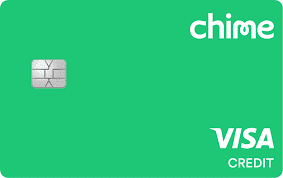
The Chime Credit Builder Secured Visa® Credit Card is a totally free secured credit card geared toward first-time credit card users — including those with limited or no credit.
The Chime Credit Builder Secured Visa really stands out because it charges no annual fee and has virtually no other account fees, unlike many competitors. And it stands almost entirely alone in waiving interest charges — period.
Additional features:
- No minimum security deposit
- No credit check to apply
- No minimum opening deposit or balance requirement for the Chime deposit account
Learn More About the Chime Credit Builder Secured Visa Credit Card
The Chime Credit Builder Visa® Card is issued by Stride Bank, N.A., Member FDIC, pursuant to a license from Visa U.S.A. Inc. and may be used everywhere Visa credit cards are accepted.
Chime is a financial technology company, not a bank. Banking services provided by The Bancorp Bank or Stride Bank, N.A., Members FDIC.
Money added to Credit Builder will be held in a secured account as collateral for your Credit Builder Visa card, which means you can spend up to this amount on your card. This is money you can use to pay off your charges at the end of every month.
Best for No Credit Check: OpenSky® Secured Visa® Credit Card
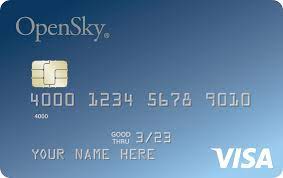
The OpenSky Secured Visa Credit Card doesn’t require a credit check with your application, meaning it’s a great choice for folks with poor or spotty credit. The biggest drawback is that there’s no clear path to transition from secured to unsecured here.
Additional features:
- Initial refundable deposit between $200 and $3,000 corresponds with your starting credit limit
- $35 annual fee
- Lots of financial education support for first-time credit card users
Learn More About the OpenSky Secured Visa Credit Card
Best for Higher Credit Limits: Applied Bank® Gold Preferred Secured Visa® Credit Card
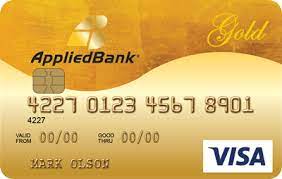
The Applied Bank® Gold Preferred Secured Visa® Credit Card is a great secured card for first-time cardholders.
With no credit check or credit history required and opening deposit requirements as low as $200, it’s great for folks looking to gain a toehold in the wide world of credit. Plus, it has an unusually high credit limit — up to $5,000 for qualified cardholders.
Additional features:
- Initial deposit between $200 and $1,000 corresponds to your starting credit limit
- No credit check required for approval
- $48 annual fee
- Reports to all 3 major consumer credit bureaus
- Very low regular APR (9.99% APR)
Learn More About Applied Bank Gold Preferred Secured Visa
Best for Low APR: Assent Platinum 0% Intro Rate Mastercard® Secured Credit Card
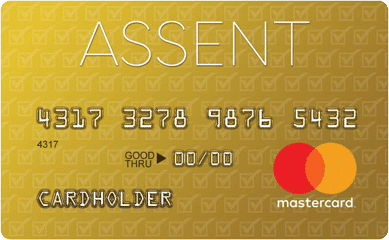
The Assent Platinum 0% Intro Rate Mastercard® Secured Credit Card’s 0% APR introductory promotion is a rarity among secured credit cards. Eligible purchases made within the offer period accrue no interest for 6 months from account opening, providing a nice financial cushion as you work to build your credit.
Additional features:
- Initial security deposit between $200 and $2,000 corresponds to your opening credit limit
- $49 annual fee
- Platinum Mastercard perks and benefits at no additional charge
- Regular reporting to all 3 consumer credit bureaus
Learn More About Assent Platinum 0% Intro Rate Mastercard
Methodology: How We Select the Best Secured Credit Cards
We use several key factors to evaluate secured credit cards and select the very best. Each relates to these cards’ overall cost, quality, or usefulness.
Security Deposit
Traditionally, most secured credit cards require each new cardholder to make a security deposit before using the card for the first time.
Most of the cards on this list follow suit, but security deposit policies vary by card. Some require only a small security deposit that’s not directly related to the credit limit. Others tie security deposit dollars to credit limit dollars at a 1-to-1 ratio. That goes for future credit limit increases as well.
Credit Check and Underwriting Requirements
Secured credit cards generally have relaxed underwriting standards in comparison to premium credit cards.
However, some go through the traditional credit check process and deny applications from people with unacceptably low credit. Others use nontraditional underwriting for applicants with thin or nonexistent credit histories, such as considering the applicant’s income and educational background. And some simply don’t require a credit check at all, making them appropriate for people with truly impaired credit.
Credit Limit and Procedure for Increasing the Credit Limit
Secured credit cards generally have low credit limits in comparison to unsecured credit cards. This is especially true in the beginning, when credit limits typically top out at $500 or less. However, this can be a blessing in disguise because secured cards usually require you to deposit an amount equal to your credit limit.
Traditionally, increasing a secured credit card’s credit limit meant making a corresponding security deposit. Some cards now waive this rule or only require partial deposits. Applying for a credit limit increase usually doesn’t require another credit check or thorough application, but some issuers make it easier than others.
Upgrade Procedure
After a year or two of responsible use and a corresponding increase in your credit score, your secured credit card issuer may allow you to upgrade to an unsecured credit card.
This may require a new application and credit check. However, as long as your account is in good standing and your balance zero, you’ll get your security deposit back.
Rewards Program
A few secured credit cards have cash-back rewards programs. While this isn’t standard (yet), it’s a nice bonus for cards that offer it. Keep in mind that more generous secured cards usually have stricter underwriting protocols.
Interest Rate
Secured credit cards tend to have higher interest rates than unsecured credit cards, but this isn’t always the case. Moreover, a small but growing number of secured cards now offer 0% APR introductory promotions for new cardholders, which can help reduce the cost of an upfront purchase over a few months.
Secured Credit Card FAQs
You have questions about secured credit cards. We have answers.
What Is a Secured Credit Card?
Secured credit cards are generally designed for people with impaired or thin credit histories.
Because secured credit card issuers take on more risk, they require cardholders to make cash deposits before making charges.
These deposits are often equal to and sometimes greater than the initial credit limits. However, they and the corresponding credit limits are often low compared to unsecured credit cards’ spending limits. Expect an initial credit limit of $500 or less from your secured card.
Over time, your secured credit card may reward you for timely payments by increasing your spending limit, in many cases without asking for an additional deposit. Your issuer reports your spending and payment patterns to the consumer credit bureaus, helping you build and improve credit with responsible use.
However, if you pay your balance late or not at all, or max out your card’s spending limit, this ongoing reporting can have negative consequences.
Can You Get Your Secured Credit Card Deposit Back?
Yes. Secured credit card issuers know that many cardholders use secured cards temporarily, for credit-building or -improvement purposes. Once their credit is on better footing, they close their accounts and receive their deposits back.
If your issuer allows you to graduate to an unsecured credit card after a year or two without reapplying, they’ll automatically refund your deposit when you upgrade.
Can You Qualify for a Secured Credit Card With Bad Credit?
Yes. Most secured credit cards are intended for applicants with impaired credit. Some go farther and don’t require a credit check at all, meaning your credit isn’t a factor in the application process at all.
Secured credit card issuers do still have underwriting standards. Depending on your recent credit history, income, and other factors, your application may be rejected.
How Do You Improve Credit and “Graduate” From Your Secured Credit Card?
Building and improving credit takes time and discipline. In addition to applying for a secured credit card and making timely, in-full payments, follow these straightforward tips:
- Pay all bills, including utility bills and rent payments, on time
- Keep your debt utilization ratio – the sum of your credit balances divided by the sum of your credit limits – below 30%, if possible
- Don’t open multiple accounts at once
- Avoid closing too many accounts at once
- Check your credit score regularly and remember to order your free annual credit report from AnnualCreditReport.com
How to Select the Best Secured Credit Card
You can’t go wrong with any of the secured credit cards on this list. But that doesn’t mean you’d be equally well served by them all.
The best secured credit card for you is the one that best helps you achieve your financial goals.
If that’s to qualify for your first credit card after bankruptcy, you’ll want a card with relaxed underwriting standards and possibly no credit check at all.
If you want to qualify for your first credit card, period, consider a card that doesn’t consider your credit history.
If you want a card with more flexible terms, possibly including the ability to raise your credit limit without an additional security deposit, you’ll have a different mix of choices.